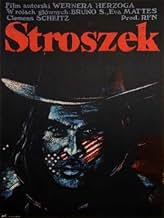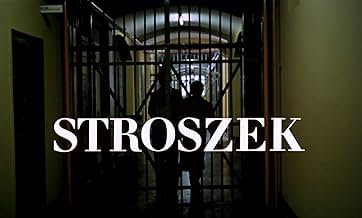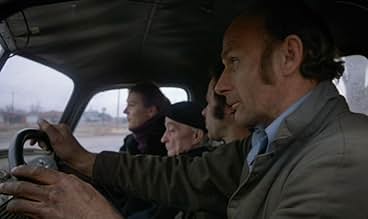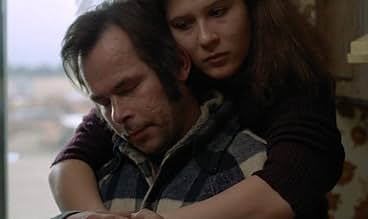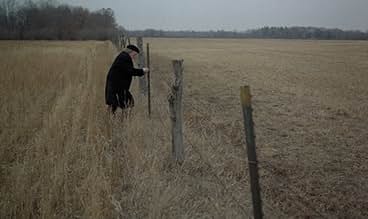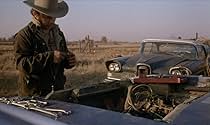A Berlino, un alcoolizzato recentemente uscito di prigione si unisce ad un amico e ad una prostituta per realizzare il suo sogno di lasciare la Germania e cominciare una nuova vita nel Wisco... Leggi tuttoA Berlino, un alcoolizzato recentemente uscito di prigione si unisce ad un amico e ad una prostituta per realizzare il suo sogno di lasciare la Germania e cominciare una nuova vita nel Wisconsin.A Berlino, un alcoolizzato recentemente uscito di prigione si unisce ad un amico e ad una prostituta per realizzare il suo sogno di lasciare la Germania e cominciare una nuova vita nel Wisconsin.
- Regia
- Sceneggiatura
- Star
- Premi
- 2 vittorie e 2 candidature totali
- Scott
- (as Scott Mc Kain)
- Doctor
- (as Dr. Vaclav Vojta)
- Turk prisoner
- (as Yücsel Topcugürler)
- Trucker Pimp
- (non citato nei titoli originali)
Recensioni in evidenza
The scene with the premature baby and the doctor is one of the greatest I've ever seen. It is just amazing, the character of that tiny infant, and shows Stroszek the fundamental power that he lacks, the tenacious nature of humanity to hold onto not only fellow human beings, but also to life itself.
The coin-operated live animals in the end represent not only cruelty and lack of compassion, but the obsessiveness of the American pursuit of entertainment. I personally felt more compassion for these creatures as victims of a system than I did for Bruno, who was pretty much doomed before he came to America.
There are certain messages in this film, and a probably important one is that it's hard to run away from trouble. Moving to a new city, or country in this case, doesn't always do it. When the prostitute leaves Stroszek for Vancouver, leaving him with a mortgage and no income, you know he's screwed. Beyond these elements, Stroszek is a movie with character but is not altogether impressive. Bruno Stroszek is interesting, but not as extraordinary as Kaspar Hauser. Ultimately, it leaves me a little underwhelmed.
Strange enough, the kitschy surreality of this film's music (a good example will be that iced lake radar search sequence) reminds me strongly of those 70's Classic Taiwanese "Beach" Dramas. You know, the kind where a pair of arms-outstretched love birds would run in slomo towards each other via opposite ends of a sandy seashore? I know, the cultural reference may be lost to non-Chinese readers and I apologise. But yes, this flick stirs and stimulates my free associative imagination with wild and insane glee. I kid you not, people. I kid you not.
However, major credits need be given to the lucidity and forceful presence of one Bruno S.
Sample below quote.
The Bruno to Eva: "And now comes the question. All my friends waited for me, but this is my best friend....my "Black Friend"(a piano). What's going to happen to my friend when Bruno goes dead someday? Where are these things and these instruments going to end up? What's going to happen to them. Someone must answer this for me." (And then, they just stared at each other, throughout and after.....)
Above affecting sequence punctuated the bittersweet vulnerability of one Bruno S. As a simple, slightly challenged man-child, Bruno had very limited human relationships all his life. As such, he guilelessly transfers his genuine feelings onto "placebo" objects. But despite of his checkered past (years of physical abuse and institutional upbringing), this socially inadequate man ably exudes generosity, kindness and unguarded honesty. Given half a chance, he will just as likely shower his unconditional love onto those whom he cares for, namely Eva. (As was shown in one scene set to the haunting tinkles of Moonlight Sonata). All in, Bruno is thus an exceptionally good man. But will there yet be more to this Bruno than meet the eyes? I dunno....
Throughout this film, I am captivated by Bruno's earnest glow; so refreshingly tender and devoid of artifice. In reaction to his search for meaning in life, love and other myriad mysteries (like "birds confiscators" or "speed-talking" men - don't ask.), Bruno's expressive face never lies. I felt immensely privileged to share in his bliss (or despair) at any given points in time. This fascinating creature tugged at my strings more often in this movie than the combined twitches of so many affected actors out there. I friggin' love this charming dude and hence, I cannot help but root for the guy. You go, Bruno!
Like the best of Herzog's works, Stroszek boasts of many scratch head-worthy moments. (Especially considering my having seen the Enigma of "Heart of Glass".) But these pecularities only serve to propel my viewing experience into mystical realms. For buried within its seemingly artful surfaces, lies aching balms of "cinematic capsules". They will randomly burst and engulf the inclined and willing. They will seep into one's consciousness and never let you go. I hence don't think I can ever erase the wonderous memories of those stolen moments already, from "Peddling Sabine" to "Infant Gymnastics", from "Not 4, but 5" to "$32". Most infamously, how can I not mention that "Dancing Chicken"? Brilliant!
At this point, I will like to urge all to venture forth into Herzog's film universe. For if you're willing, or foolhardy enough to take that plunge, you may yet discover a film like Stroszek to be ceaselessly beautiful and effortlessly moving.
"Stroszek" tells the fictional story of a real man named Bruno Stroszek. In other words, Stroszek plays himself in this eccentric film about a man who's released from prison, meets back up with his girlfriend and elderly buddy, and takes off for the fabled lands of....Wisconsin....to pursue the American dream. Anyone who's actually been to Wisconsin can probably guess how things play out for three immigrants with about three dollars between them. What follows is a series of vignettes that place Bruno in increasingly desperate straits and ends in an ambiguous finale that involves a ski lift and dancing chickens.
Welcome to the world of Werner Herzog, folks. "Stroszek" is not as compelling as some of Herzog's best, but it does inspire a sort of morbid fascination, if only because we take comfort that our situation isn't as bad as the one our characters find themselves in. But lest you are tempted to feel too sorry for Stroszek, he, like many of Herzog's protagonists, staunchly refuses to beg for sympathy, and faces one hardship after another with the dogged determination of a man who never fully understands how humble is his lot.
Grade: A-
The running commentary that Herzog has recorded for the recent DVDs of his films are among the most interesting and engaging I've heard, and they're one of the reasons I especially appreciate the DVD medium. That's not to say that he lets the literal-minded viewer off the hook by providing handy explanations for every peculiar image or bit of dialog. When asked what a certain image or phrase signifies, he will sometimes simply say that he cannot explain it. But I find it fascinating to watch a scene, and then scan back and listen to his comments about the location, actors, technical details, and yes, even sometimes the intended effect of a puzzling image. Many of the people seen in his films are non-actors, people he simply ran into, found interesting, and intuitively knew would be effective on film. Some of the players in Herzog's films are the very people that most directors would chase from their set with security guards, but he sees something interesting in them, and finds a way to tap into it. I can't help liking the man for that. Some people have suggested that his use of the unfortunate Bruno S. as a film actor amounted to some sort of exploitation. But it seems to me that his befriending of Bruno, and his artful and patient use of him as a film actor, must have given Bruno some sense of the dignity and worth as a unique human being that was denied him for most of his life. If this means nothing to you, and you don't know anything about Bruno S., the commentary tracks on either "Stroszek" or "The Enigma of Kaspar Hauser" explain his background nicely. It's a remarkable story.
If you're unfamiliar with Herzog's work, he has done some especially exotic films with the volatile actor Klaus Kinski. "Cobra Verde" is a particular favorite of mine. But his films do not have the relentless pace or hyperactive editing typical of mainstream American films. They are unforgiving of those with short attention-spans, so be forewarned.
Lo sapevi?
- QuizThe entire crew disliked the last sequence so much that director Werner Herzog had to shoot it by himself. Incidentally, he considers this scene the best he has filmed.
- BlooperAfter Bruno, Eva and Scheitz buy a used car, they drive out to Wisconsin. The camera's shadow is visible on the car as Eva drives.
- Citazioni
[last lines]
Deputy Sheriff: We have a 10-80 out here, a truck on fire, we have a man on the lift. We are unable to find the switch to turn the lift off, can't stop the dancing chickens. Send an electrician, we're standing by.
- ConnessioniFeatured in Century of Cinema: Die Nacht der Regisseure (1995)
- Colonne sonoreOn the Way Down to Phoenix
Written and Performed by Chet Atkins
I più visti
- How long is Stroszek?Powered by Alexa
Dettagli
- Data di uscita
- Paese di origine
- Lingue
- Celebre anche come
- Stroszek
- Luoghi delle riprese
- Plainfield, Wisconsin, Stati Uniti(hold up on North Street)
- Aziende produttrici
- Vedi altri crediti dell’azienda su IMDbPro
Botteghino
- Lordo in tutto il mondo
- 3451 USD

